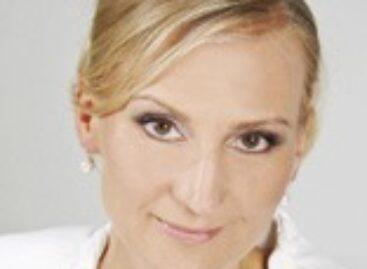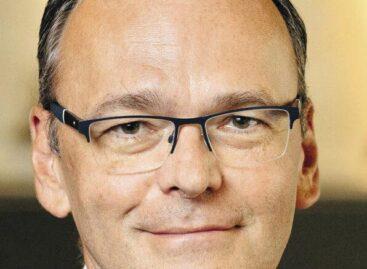Business Dinner: economic policy and competitiveness were on the menu
Trade magazin and the Chain Bridge Club organised their traditional Business Dinner in May. This time the event’s title was Economy and Politics and the host was Szilvia Krizsó.
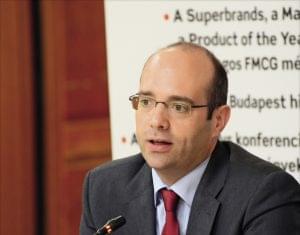
Ágoston Sámuel Mráz
director of Nézőpont Institute
The first speaker was Ágoston Sámuel Mráz, the director of Nézőpont Institute. He told that in May 2018 Prime Minister (PM) Viktor Orbán made an attempt tostart using a positive term for Hungarian democracy, calling it Christian instead of illiberal. He even took the cunning political step of saying: he is the real liberal, because his modern Christian democracy is protecting the freedom of speech against political correctness and religious freedom against anti-Semitism. His main goal with this move was to give himself a positive image in the communication space, at the same time also generating debates.
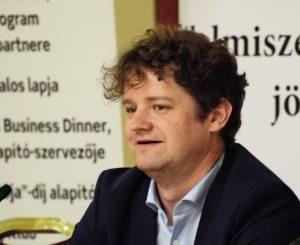
Csaba Tóth, director of Republikon Institute
Csaba Tóth, director of strategy at Republikon Institute talked about how the Prime Minister and his political party like to do politics as it was some kind of battle – at least at a rhetorical level – against an enemy. He added that the Prime Minister has nurtured the ambition to set the direction of debates on the European stage for a long time. This couldn’t be done on an illiberal basis, because illiberalism isn’t acceptable in Europe, but the objective can be realised as a Christian democrat, even more so because one of Mr Orbán’s most important allies is Germany’s Christian Democratic Union (CDU).
When talking about the structure of the new government, Mr Mráz explained that it is going to be under the direct supervision of the Prime Minister. In his view there are three power centres in the new government, headed by Gergely Gulyás, Marcell Bíró and Antal Rogán. Mr Tóth agreed with this, but made the remark that in Mr Orbán’s government we can’t really talk about political figures that have their own power. He thinks that there is no such thing as a perfect government structure, because every government struggles with some kind bureaucratic incapacity and the PM’s goal is to do away with this somehow.
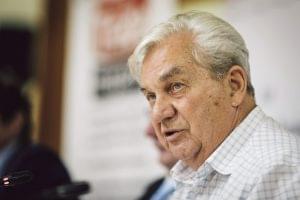
Dr. Attila Chikán economist
Economist and former Minister of Economic Affairs Attila Chikán opined that it would require a lot of time from the Prime Minister to coordinate the work of the three power centres mentioned above. He doesn’t really see how this structure is supposed to work in practice. In his view those organisations that feature very different units with the same level of power are difficult to manage well. A perfect example of this is the Ministry of Human Capacities that is basically responsible for the whole society. Mr Chikán is happy to see that Hungary has a Ministry of Finance again, but he believes that the country would also need a Ministry of Economic Affairs.
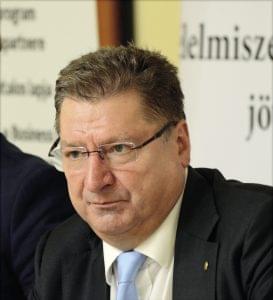
Dr. László Parragh, president of MKIK
László Parragh, the president of the Hungarian Chamber of Commerce and Industry (MKIK) expressed his opinion that the structure of the new government had been designed to match its tasks. In 2018 the main tasks are ensuring sustainability and establishing the conditions in which growth can continue, and its effects be felt at every level of society. The president thinks this can’t be done with the help of monetary and fiscal tools only. Mr Parragh is of the opinion that the ministry led by Mr Palkovics will play a key role: a lot depends on how we can integrate knowledge into the economy, so that innovation work bears fruit.
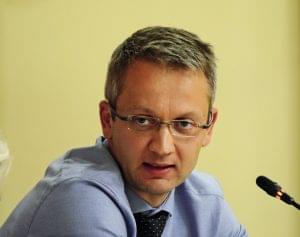
János Samu, chief economist of Concorde
János Samu, chief economist of Concorde forecasted economic growth in the short term, which will be around 3-4 percent. Demographically Hungary isn’t prepared to step on a growth path bigger than this in the long term. When discussing the problems of vocational education in Hungary, Mr Parragh called attention to the fact that in the last five years the secondary school system lost approximately 100,000 students, primarily because of demographic reasons. From this 84,000 dropped out of vocational education and grammar schools lost 16,000 students. MKIK’s president told about retail chains that Hungarian-owned grocery retailers are fighting for survival and losing ground in the competition with multinational FMCG giants. They have the resources to buy the sites and build modern stores that utilise that latest technological solutions. At the moment he can’t see any chance for strengthening the positions of CBA or Coop.
Moderator Szilvia Krizsó asked Mr Chikán about how competitive Hungary’s economy is. He told: the problem is that we are comparing our economic performance with our own performance in the past. Other countries in the region or the Baltic States are way ahead of us and this means that there is something we don’t do right. They perform better no matter which indicator we are looking at – per capita GDP, GDP growth, economic output, etc.
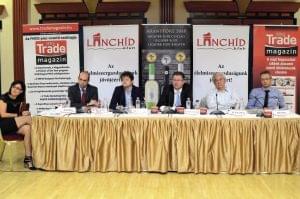
Mr Samu reckons that we can analyse many different indicators or survey results, from which the most popular and probably the most famous is the World Economic Forum’s report: in this Hungary can be found somewhere in the middle of the ranking. In connection with this, he told that there are certain factors which are difficult to measure. The Central Bank of Hungary (MNB) had developed an alternative competitiveness index that was first published last year. It only uses objective criteria and consequently there are big differences between the two indexes, as MNB puts Hungary in a much better position than the World Economic Forum. The chief economist explained that it is very difficult for a country to bridge the gap between the medium level of development and the high level of development. His view is that Hungary is in the medium-income category at the moment and the policy of industrialisation won’t lift the country into the category of higher economic development. Perhaps this policy will improve our position a little, but it would be much more important to invest in education and healthcare, and to fight corruption and restore people’s faith in politics and public affairs. //
Related news
The secret of success is creativity…
…this is what the Superbrands award winners voted for in…
Read more >The future of the Hungarian food industry: sustainable innovation
Both as owner of Real Nature Kft. and as chairperson…
Read more >Chain Bridge Club October exclusive: Even with high purchasing power, there are challenges: an up-close view of the Belgian market
Péter Szautner, managing director of FrieslandCampina gave an insight into…
Read more >Related news
The Christmas season is starting earlier and earlier: value for money is the key
This year, 40 percent of Hungarians brought their Christmas shopping…
Read more >The SZÉP card will also be available in digital form from 2025
From September 1, 2025, a significant change will come into…
Read more >SHEIN’s first Hungarian store has opened
On December 10, 2024, at noon, SHEIN’s first Hungarian store…
Read more >


